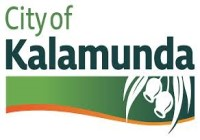Value added by industry is an indicator of business productivity in the City of Kalamunda. It shows how productive each industry sector is at increasing the value of its inputs. It is a more refined measure of the productivity of an industry sector than output (total gross revenue), as some industries have high levels of output but require large amounts of input expenditure to achieve that.
By comparing the value added of each industry sector to a regional benchmark, you can clearly see the structure of the City of Kalamunda’s economy. This can be done by directly comparing the percentage contribution of each industry to the total output, relative to the benchmark, or by using a location quotient, where a number greater than one indicates a high concentration of that industry and less than one indicates a lower concentration.
To see what contribution each industry makes to the state or region, see the Industry sector analysissection. To understand the value of a worker in each industry, view this dataset in conjunction with Worker productivity data, and to see the relationship of value added to the total size of the economy, go to the Gross Regional Product section.
Detailed notes about how the figures are derived can be found in the specific topic notes section.
Data source
National Economics (NIEIR) - Modelled series
Current benchmark:
Comparison year:
| Value added by industry sector | |||||||||
|---|---|---|---|---|---|---|---|---|---|
| City of Kalamunda | 2022/23 | 2017/18 | Change | ||||||
| Industry | $m | % | Western Australia | $m | % | Western Australia | 2017/18 - 2022/23 | ||
| Agriculture, Forestry and Fishing | 53.1 | 2.0 | 2.8 | 41.5 | 2.0 | 2.2 | +11.6 | ||
| Mining | 131.8 | 5.0 | 49.8 | 99.8 | 4.8 | 50.9 | +32.0 | ||
| Manufacturing | 347.0 | 13.0 | 4.5 | 258.0 | 12.4 | 4.8 | +89.0 | ||
| Electricity, Gas, Water and Waste Services | 92.1 | 3.5 | 1.3 | 56.5 | 2.7 | 1.4 | +35.6 | ||
| Construction | 250.2 | 9.4 | 5.5 | 181.3 | 8.7 | 6.9 | +68.9 | ||
| Wholesale Trade | 251.3 | 9.5 | 2.7 | 125.6 | 6.0 | 2.2 | +125.8 | ||
| Retail Trade | 102.7 | 3.9 | 2.7 | 111.2 | 5.3 | 2.7 | -8.5 | ||
| Accommodation and Food Services | 56.9 | 2.1 | 1.4 | 52.9 | 2.5 | 1.5 | +4.0 | ||
| Transport, Postal and Warehousing | 529.5 | 19.9 | 3.5 | 389.7 | 18.7 | 3.4 | +139.9 | ||
| Information Media and Telecommunications | 13.1 | 0.5 | 0.8 | 14.1 | 0.7 | 0.8 | -1.0 | ||
| Financial and Insurance Services | 66.0 | 2.5 | 3.3 | 114.1 | 5.5 | 3.2 | -48.0 | ||
| Rental, Hiring and Real Estate Services | 109.6 | 4.1 | 1.9 | 85.1 | 4.1 | 1.7 | +24.5 | ||
| Professional, Scientific and Technical Services | 97.6 | 3.7 | 4.6 | 80.2 | 3.9 | 4.5 | +17.4 | ||
| Administrative and Support Services | 97.3 | 3.7 | 2.2 | 63.6 | 3.1 | 1.9 | +33.7 | ||
| Public Administration and Safety | 48.9 | 1.8 | 2.9 | 61.4 | 3.0 | 3.0 | -12.6 | ||
| Education and Training | 157.3 | 5.9 | 2.8 | 143.5 | 6.9 | 2.9 | +13.7 | ||
| Health Care and Social Assistance | 168.3 | 6.3 | 5.0 | 132.3 | 6.4 | 4.5 | +36.1 | ||
| Arts and Recreation Services | 10.4 | 0.4 | 0.4 | 9.7 | 0.5 | 0.4 | +0.6 | ||
| Other Services | 76.5 | 2.9 | 1.5 | 61.1 | 2.9 | 1.3 | +15.4 | ||
| Total industries | 2,659.5 | 100.0 | 100.0 | 2,081.6 | 100.0 | 100.0 | +578.0 | ||
Source: National Institute of Economic and Industry Research (NIEIR) ©2023. Compiled and presented in economy.id by .id (informed decisions). NIEIR-ID data are adjusted each year, using updated employment estimates. Each release may change previous years’ figures. Learn more Please refer to specific data notes for more information | |||||||||


Dominant groups
An analysis of the valued added by industry sectors in the City of Kalamunda in 2021/22 shows the three largest industries were:
- Transport, Postal and Warehousing (530 million or 19.9%)
- Manufacturing (347 million or 13.0%)
- Wholesale Trade (251 million or 9.5%)
In combination these three industries accounted for 1,128 million in total or 42.4% of the total value added by industry in the the City of Kalamunda.
In comparison, the same 3 industries in Western Australia accounted for 3.5% in Transport, Postal and Warehousing; 4.5% in Manufacturing and 2.7% in Wholesale Trade.
The major differences between the value added by industries of the City of Kalamunda and Western Australia were:
- A smaller percentage of value added by Mining (5.0% compared to 49.8%)
- A larger percentage of value added by Transport, Postal and Warehousing (19.9% compared to 3.5%)
- A larger percentage of value added by Manufacturing (13.0% compared to 4.5%)
- A larger percentage of value added by Wholesale Trade (9.5% compared to 2.7%)
Emerging groups
The total value added by industry in the City of Kalamunda $increased by 578 million between 2017/18 and 2022/23.
The largest changes in the value added by industries between 2017/18 and 2022/23 in the City of Kalamunda were for:
- Transport, Postal and Warehousing (+$140 million)
- Wholesale Trade (+$126 million)
- Manufacturing (+$89 million)
- Construction (+$69 million)
